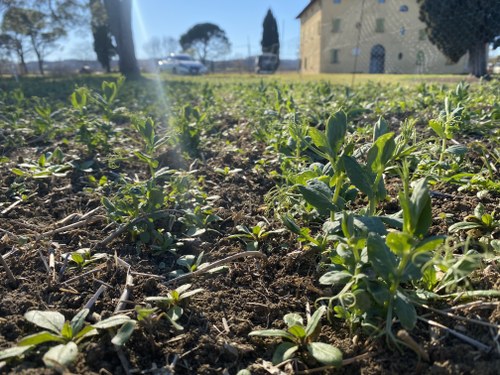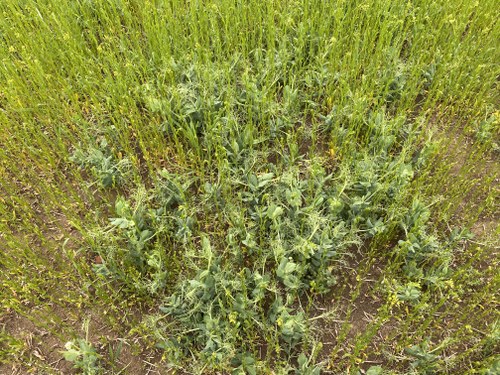Developing intercropping systems with camelina to increase the yield and quality parameters of local underutilized crops.
36 months: 01/12/2021 - 30/11/2024
Core Organic 2021 call: Sub-topic 2 - "Support for robust and resilient crop production systems"

At present, european farming systems mostly rely on monocropping which is particularly susceptible to climate change and sustained by high agronomic inputs. Research demonstrated clear benefit evidence from crop diversification at soil and ecosystem level, which leads to enhanced water and nutrient use efficiency, and increased biodiversity (above- and belowground) and system resilience. In organic farming is even more vital to take advantages from plant-based functional biodiversity to achieve sustained yield and consequent farmers’ profit.
The "SCOOP" project is focused on innovative and diversified organic intercropping systems aimed at preserving ecosystem and agricultural land integrity, biodiversity, and food/feed security. The new intercrops will be based on camelina (Camelina sativa (L.) Crantz), a native european multi-purpose oilseed crop, with large environmental suitability and highly adaptable to organic farming, and locally selected underutilized crops.
The companion crop (e.g. pulses, pseudo-cereals, ancient cereals etc.) will be identified locally in the living labs created at hoc which will gather local stakeholders, farmers, breeders, scientist, food processors, considering their needs, expectations, traditional food uses, and the most representative organic farming systems. SCOOP intercropping will be grown in four different european pedo-climates in Bulgaria, Italy, Poland, and Turkey.
"SCOOP" intercrops will be a win-win solution allowing: early soil coverage, enhancing the efficient use of natural resources (e.g. water), preventing N-leaching and soil erosion; reduction of inputs for pest and disease control due to a higher competitive advantage over weeds and diseases of diversified cropping systems; promotion of seed quality; new market opportunities. The "SCOOP" consortium follows a multi-actor approach with 4 partners from the R&D and 2 representing the productive/consumers’ world, with the aim of maximizing the result impact.

"SCOOP" aims to identify the best systems of biological consociation of camelina with varieties of local crops such as legumes, ancient cereals or aromatic herbs and their demonstration. The project covers a wide range of pedoclimates, for example continental (Poland), Pannonian (Bulgaria) and Mediterranean (Italy and Turkey). The intercropping systems developed within the "SCOOP" project will try to offer cost-effective solutions to all the actors involved and from multiple points of view.
In particular: ensure early soil cover; improve the use of natural resources by preventing nitrogen leaching and soil erosion; reduce inputs for pest and disease control; increase the quality of seeds harvested; open up to new market opportunities.
The intercrops of "SCOOP" will be cultivated in 4 different European pedoclimates in Bulgaria, Italy, Poland and Turkey and will offer advantageous solutions in line with the European strategy of FARM2FORK.